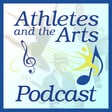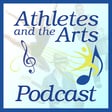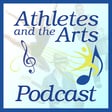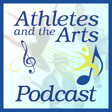
Hopping Into Hip-Hop: Detroit Version
How does one take music, rapping, writing, performing and turn that into a career? On our show today is recording artist Derek Demkowicz, aka Demko, and Michael Reiber, head of marketing for Headlights Hip Hop and Derek’s buddy from high school. We discuss how they started in music, the value of comedy improv training, and the benefits of controlling your own destiny. Derek and Michael also talk about their hip hop concert they are putting on in Detroit on May 18, 2024.
For Demko's Spotify page, go to: https://open.spotify.com/artist/36bOXFMGTOcg3fNGsqVZhi?si=4_X9uuIAShijrEfyKpFHgQ
For Demko's Apple Music page, go to https://music.apple.com/us/artist/demko/1557597311
Demko's IG: @demkomusic
For more resources on performing arts medicine, go to www.athletesandthearts.com
Bios:
Derek Brian Demkowicz, AKA Demko, is an LA-based rapper, producer, and sound engineer with Detroit and Chicago roots. As an independent artist he has gained over 250k streams worldwide, released songs with Grammy-nominated artists, and connected with fans in 150+ countries. Notable collaborations include: Royce Da 5’9”, Mick Jenkins, GAWNE, and Futuristic. Stream Demko wherever you listen to music.
Michael Reiber has years of music industry experience out of New Orleans, Detroit, New York, and currently Nashville. His passion for human connection through music and creative brand storytelling has been the focus of his work since the beginnings of his career at Loyola University New Orleans, where he started his first marketing company in 2016. Today, Michael is the Head of Marketing for Headlights Hip-Hop, a rap start-up headquartered in Detroit, and manages Demko, his lifelong friend that he met through music in high school at U of D Jesuit.



